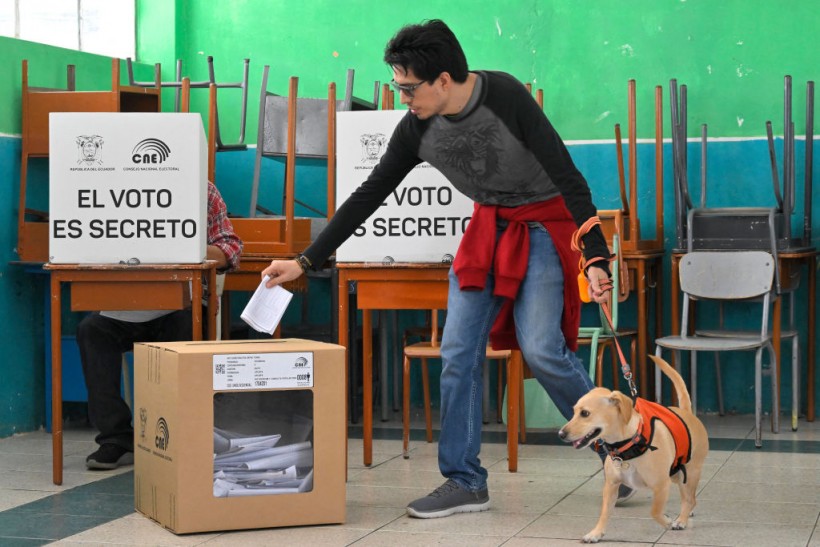Ecuador War on Crime Faces Referendum as Citizens Head to the Polls

Ecuador is trying to fight back against the rising tide of crime plaguing the country and one of the first steps is a referendum which has citizens going to the polls, answering 11 questions about how the government should tackle crime and violence in the country which used to be the safest in South America.
Al Jazeera News reported that the majority of these questions that voters had to answer on Sunday tackled tightening security measures around the country as it fights drug gangs that have gained much power after Mexican drug cartels infiltrated them and armed them.
The referendum reportedly loosens obstacles to extradition of accused criminals, and it also makes the prison sentences for convicted drug traffickers a lot longer. This will define what Ecuador will do against these Mexican Cartel-backed gangs moving forward.
The referendum "will define the course and the state policy that we will take in order to face the challenge of fighting against violence and organized crime," according to Ecuador President Daniel Noboa, who declared a state of "internal armed conflict" in the country last January as he wages war against around 20 criminal groups that authorities believe to be responsible for the surge in drug-related violence all over Ecuador.
The atrocities of these gangs included a prison break-in leading to the escape of many imprisoned drug gang members, the kidnapping of dozens of people, and the recent assault inside a local TV station. This is in addition to the frequent and bloody gun battles these gangs have against one another for control of territory and shipping lanes where they can transport drugs from South America to the United States and Europe.
READ MORE: Mexico Vs. Ecuador Feud: White House Slams Ecuadorian Government Over Raid Vs. Mexico Embassy
President Daniel Noboa Could Gain Politically as He Seeks Re-Election With Crime Referendum
This referendum may lead Ecuador to follow in the footsteps of Nayib Bukele in El Salvador, a country that has become known for its recent success in controlling the violent gangs plaguing the country. Much like Bukele, fellow millennial leader Daniel Noboa, 36, could also gain politically from being tough on these criminal groups.
"We can't live in fear of leaving our homes," Leonor Sandoval, a 39-year-old homemaker, told the Associated Press. She voted for all the proposals on Sunday, and should they pass, this could boost Daniel Noboa's re-election chances next year as Ecuadorians grow weary of the drug gangs terrorizing the populace.
Ecuador Also Facing Diplomatic Problems After Mexico Embassy Raid
Aside from its rising crime and violence problem, Ecuador is also facing a massive diplomatic problem as countries from all over the Americas have slammed the Daniel Noboa government over its brazen raid at the Mexican Embassy to capture former Vice President Jorge Glas.
As ABC News Australia pointed out, this could spell trouble for Ecuador on the international stage as several world leaders, including President Joe Biden, have called Noboa out for his actions. Mexico has also filed a complaint at the UN to try and expel Ecuador while also launching a case against the country in the International Court of Justice.
While Ecuador being expelled is highly unlikely, the embassy raid is expected to continue to impact Ecuador's international standing moving forward.
READ MORE: Former Ecuador Vice President Jorge Glas Attempted Suicide
This article is owned by Latin Post.
Written by: Rick Martin
WATCH: Ecuador: Violence leaves streets empty in 'armed internal conflict' - BBC News
Subscribe to Latin Post!
Sign up for our free newsletter for the Latest coverage!










